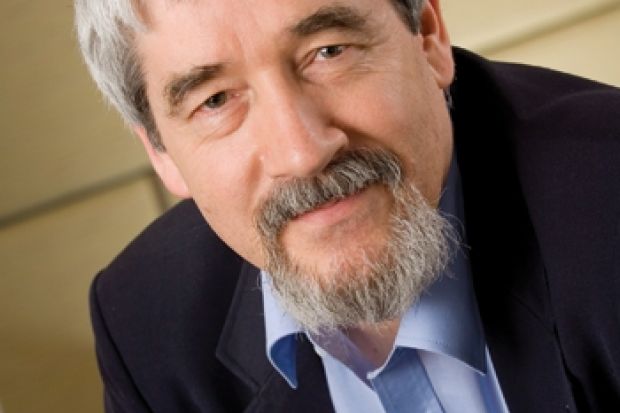The research councils' drive to promote greater collaboration among researchers could be thwarted unless something is done about the way that funding formulas promote institutional and individual rivalry.
This is the view of David Delpy, chief executive of the Engineering and Physical Sciences Research Council, who told Times Higher Education that the councils' latest delivery plans all contain a "common message about collaboration, not competition".
He added that the impact of research in the areas funded by the EPSRC would typically be maximised if it were carried out in large groups. Meanwhile, industrialists were also keen to work with the academy as a whole rather than individual universities, he said.
Professor Delpy admitted that collaboration was "not easy" and could be hampered by personality clashes, but said that, in general, researchers were happy to collaborate as long as they saw the benefits of doing so.
"What has often caused difficulties in creating large teams is that it requires institutions to collaborate as well," he said.
The research assessment exercise, which was run for the last time in 2008, did "not exactly help" the situation, Professor Delpy argued.
He said that the RAE, which still determines the distribution of about £1.5 billion in annual quality-related research funding, had "driven a fantastically efficient and very competitive research base that has not helped people collaborate, because institutions have been measured against what they as individual institutions have done".
He added: "You didn't get extra brownie points because one-third of your research was collaborative."
This in turn meant that universities' promotion criteria typically did not reward collaborative efforts such as "enabling a whole area of research to gain large-scale funding from the European Union" by "corralling and marshalling" individual researchers to put together joint bids, Professor Delpy said.
"It is all about how many PhD students and research grants you have as a principal investigator. The research councils can reward (collaborative) activity and we will be doing so, but we also need other parts of the (research funding) landscape to do so."
Professor Delpy said that closer working with the Higher Education Funding Council for England, which was responsible for the RAE and is overseeing the forthcoming research excellence framework, would be facilitated by the fact that both were now the responsibility of Sir Adrian Smith, director general for knowledge and innovation at the Department for Business, Innovation and Skills.
"We have always worked well with the Technology Strategy Board, but we now have a clearer way of working with Hefce and can see how we can all deliver together. If we can't get it right this time, there is nowhere to hide," he said.
A spokesman for Hefce said that the REF, which will be run in 2014, would "encourage collaborative submissions and recognise large programmes and critical mass where they lead to excellent work".
He said submission guidance for institutions would be released in July, with detailed criteria for the assessment panels and subpanels to follow in January 2012. The names of the members of the 36 subpanels were released last week.
Register to continue
Why register?
- Registration is free and only takes a moment
- Once registered, you can read 3 articles a month
- Sign up for our newsletter
Subscribe
Or subscribe for unlimited access to:
- Unlimited access to news, views, insights & reviews
- Digital editions
- Digital access to THE’s university and college rankings analysis
Already registered or a current subscriber? Login
